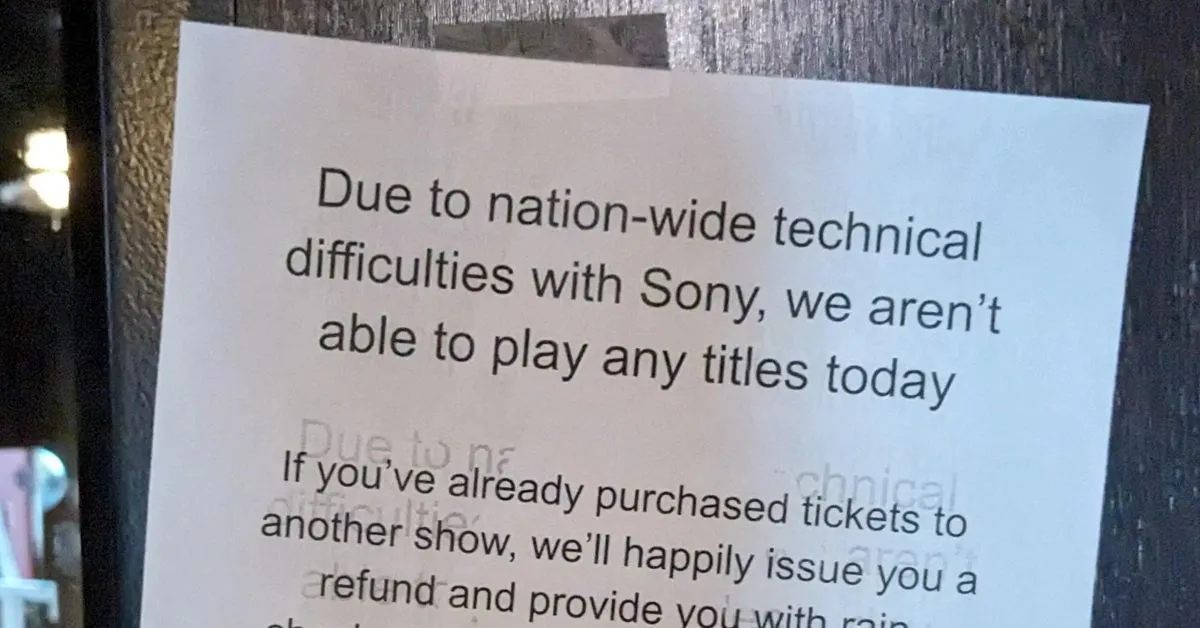From the article:
When we went to our seats, the wait staff let us know that despite the fact that the previews were playing, we wouldn’t know until the movie actually started whether we could see the film or not. If it didn’t work, the screen would just turn black. Luckily, the film went through without a hitch.



Is there any reasonable level of IP protection/DRM which may be employed by movie studios?
Should all films have simultaneous worldwide cross-platform releases, never theater only? If not, it seems some kind of defenses on the high-quality digital files for theaters would be a rare case where DRM seems somewhat justifiable… assuming it’s robust (beyond mergers/closures of the provider), and consumers never have to think about it.
Would love to hear arguments both for and against any protection schemes for any film ever.
Re: reasonable levels - You can have fail safe or fail secure. Those are two mutually exclusive options. Locking people out of content, whether it be consumers or a partner organization (like a theater) is the price of security (fail secure).
There is no condition where mild DRM is valuable to anyone. For consumers it constitutes a hurdle to use of content they have purchased without hindering non-purchased copies from being reproduced and distributed. No DRM allows the latter; unbreakable DRM ensures the former will be substantially affected at some point.